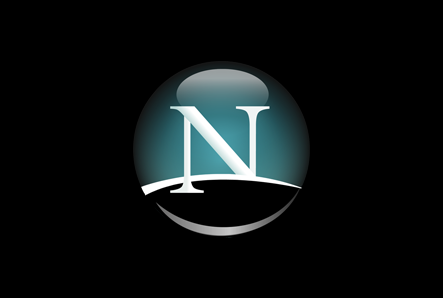What Microsoft's AOL/Netscape patent purchases mean

We now know a little more about the Netscape patents that Microsoft bought from AOL. It's believed that the patents that Microsoft either bought outright or acquired a license for over a billion bucks include:
Patent No. 5657390, Secure Sockets Layer (SSL), which has since been transformed into Transport Layer Security (TLS). SSL/TLS sets up an encrypted communication channel between Web browsers and servers. It's used in practically every Internet financial transaction
Patent No. 7478142. Packing Web-browser based applications This describes how to package applications that are delivered over the Internet and then runs inside a Web browser. You could argue that this covers all Web 2.0 technologies.
Patent No 5774670 and Patent No. 5826242, Cookies. These patents cover cookies and their use. Web servers and browsers use cookies for advertising, e-commerce shopping carts, persistent Web site logons and on and on and on.
You get the idea. These are all essential Web technologies. In addition, as Envision IP, a patent-research firm, points out, “Many of these patents relate to fundamental online communication technologies, stemming from AOL’s early dominance in the instant messaging and email markets. In addition, AOL has a large number of early patents related to cache optimization, webpage rendering, search engine technologies, and multimedia compression and transmission. … [AOL] certainly owns many technologies that are fundamental to electronic and voice messaging, Internet user experience, multimedia sharing, and web-based data retrieval, technologies that have become common place in today’s online world.
So, should we be worried that Microsoft now owns the intellectual property rights to so many Web fundamental patents?
Ian Jacobs, head of the of World Wide Web Consortium (W3C) Marketing and Communications, isn't worried. The W3C is the international community that develops open standards to promote the Web. Jacobs says, “All of these companies [Microsoft, Google] are participating in W3C Working Groups under our Royalty-Free patent policy. This means that implementers have all the essential patents they need to use and innovate on top of the Open Web Platform, helping to bolster the appeal of these open standards.” Jacobs admits “many companies engaged in lawsuits against one another.” But, he optimistically continues, “within [the] W3C they are all around the same table, working on platform technology, but having made Royalty-Free commitments.”
Mozilla, Firefox's parent company, also hopes that Microsoft's acquisition of Netscape's patents wont' hurt them. After all, while at Netscape, Mozilla's CTO Brendan Eich, created JavaScipt—which is now presumably belongs to Microsoft.
Harvey Anderson, Mozilla's general counsel told me, "Microsoft’s acquisition of the Netscape patent portfolio does not put Mozilla at any additional risk for patent exposure. In this case, the risk is slightly lower because early code contributions from Netscape to the Mozilla project came with patent licenses from Netscape/AOL via the Mozilla Public License and these licenses are still in play today. We will continue to keep a close eye on this, but do not view this as threatening at this time.”
That sounds nice, but at about $1.25 million per patent, surely Microsoft expects something for their investment!
Erin-Michael Gill, managing director and chief intellectual property officer for MDB Capital Group, an investment banking firm that focuses on intellectual property told CNET that "There is a whole host of products that Microsoft will want to increase their leverage over Google with. This should allow Microsoft to operate as something of a gatekeeper."
Andrew ‘Andy’ Updegrove, a founding partner of Gesmer Updegrove, a top technology law firm, thinks that many of these patents may not be as dangerous as you might first think. “Given that some of these patents date back to Netscape, the most obvious point to make is that those patents must be very long in the tooth by now. If any substantial portion of the package Microsoft bought is indeed about to expire.” For example, the SSL patent is due do expire on August 25, 2015.
So why buy them? Updegrove speculates, “I'd offer that this latest sale reinforces the concept that we are in the middle of a patent arms race, with each of the IT superpowers acquiring not just patent baskets to plug holes in their defenses, but also to gross up their arsenal of claims. Just as in the Cold War, we seem to be witnessing a face off that has less and less to do with rational practices, and more and more to do with pure escalation. And certainly very little to do with innovation. “
Thomas Carey, a partner at Sunstein, a major intellectual property (IP) law firm and chair of its Business Department, agrees that “many of these patents are getting quite long in the tooth.” But still, “ Who knows what gems can be found in a pile of 800 patents owned by a company that was once an industry pioneer?”
Certainly, for over a billion in cold hard cash Microsoft thinks there are still some gems in the dross. And, what will they do with these jewels? Everyone I spoke with agreed that they would be used to either defend against, or attack, Google in the Internet and mobile patent wars. We shall see how this works out for Microsoft.
Related Stories:
CNET: Why Microsoft spent $1 billion on AOL's patents
Microsoft buys Netscape Web patents from AOL to attack Google
AOL's patent sale to Microsoft: stripped clean, or savvy move?
AOL, Microsoft announce $1.056 billion patent deal
